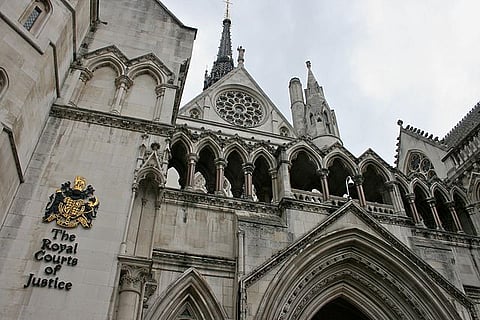

Britain’s High Court has ruled that the government’s decision to continue exporting F-35 jet components to Israel is lawful, despite acknowledging the potential for these parts to be used in violations of international humanitarian law in Gaza.
The decision, issued on Monday by Judges Stephen Males and Karen Steyn, emphasizes that such politically sensitive matters fall under the executive’s authority, accountable to Parliament and the electorate, not the courts.
The 72-page ruling dismissed a challenge by Palestinian human rights group Al-Haq, which argued that the UK’s exemption of F-35 parts from a partial arms export ban in September 2024 was unlawful due to the risk of facilitating crimes in Gaza.
Al-Haq, alongside organizations like Oxfam and Human Rights Watch, contended that the UK’s role in supplying F-35 components through a global spares pool indirectly supports Israel’s military actions, which have killed over 56,500 Palestinians and injured over 133,419 since October 2023.
The court acknowledged the risk of these parts being used in breaches of international law but accepted the government’s argument that halting exports could disrupt the global F-35 program, impacting NATO allies and broader security interests, including Ukraine’s defense against Russia.
Shawan Jabarin, Al-Haq’s director, stated:
By exposing serious government failings in facilitating international crimes against Palestinians through its arms exports, civil society and human rights organisations have achieved a crucial breakthrough, and we will continue to persevere until governments are held accountable, Israel’s impunity is challenged, and justice for the Palestinian people is realised.
Shawan Jabarin.
The ruling has sparked criticism for prioritizing strategic interests over accountability for potential war crimes.
The UK, a major contributor to the F-35 program with companies like BAE Systems securing significant contracts, continues to supply parts like refueling probes and ejector seats to a global pool accessible to Israel.
Critics argue this undermines international law, including the Geneva Convention, given the scale of destruction in Gaza.
The case revealed that the UK government reviewed only 413 of tens of thousands of Israeli airstrikes by September 2024, finding just one possible violation.
This selective scrutiny, coupled with the court’s deference to the executive, has raised questions about the effectiveness of the UK’s arms export controls and its complicity in ongoing atrocities against Palestinians.